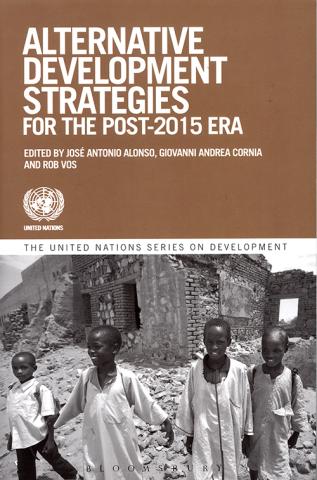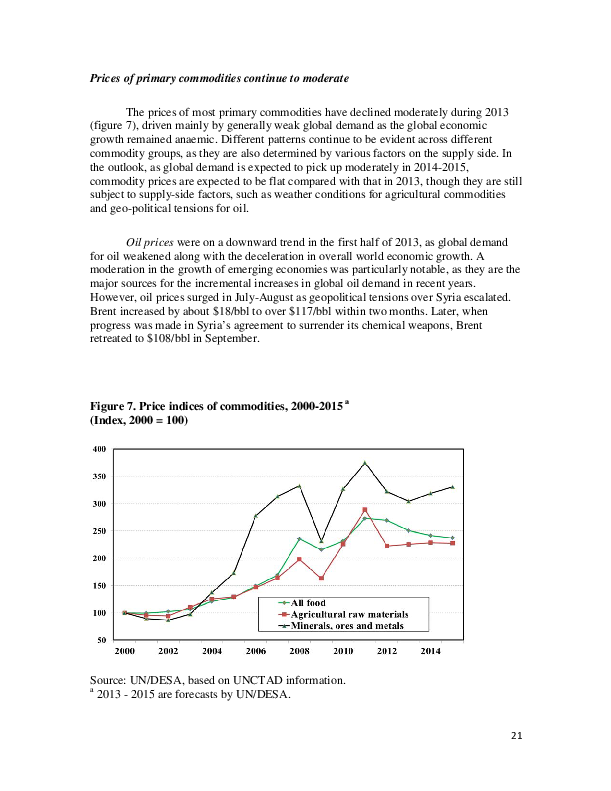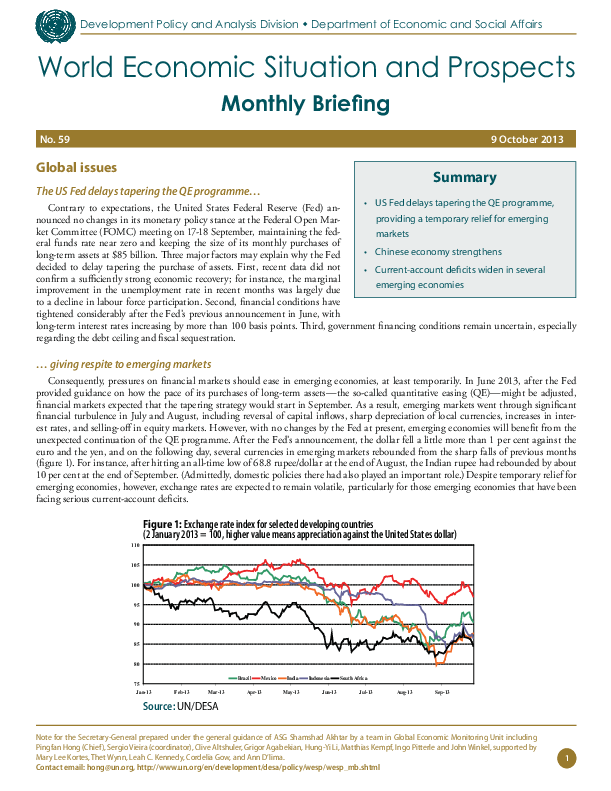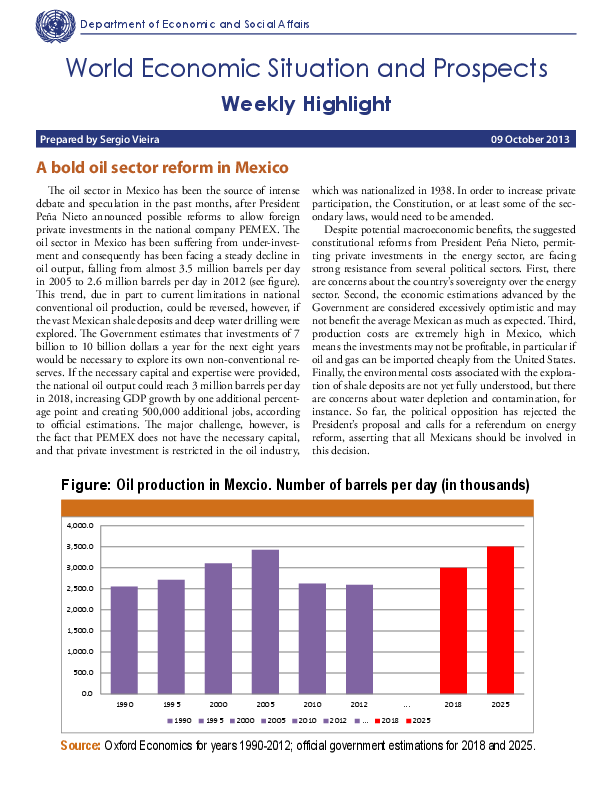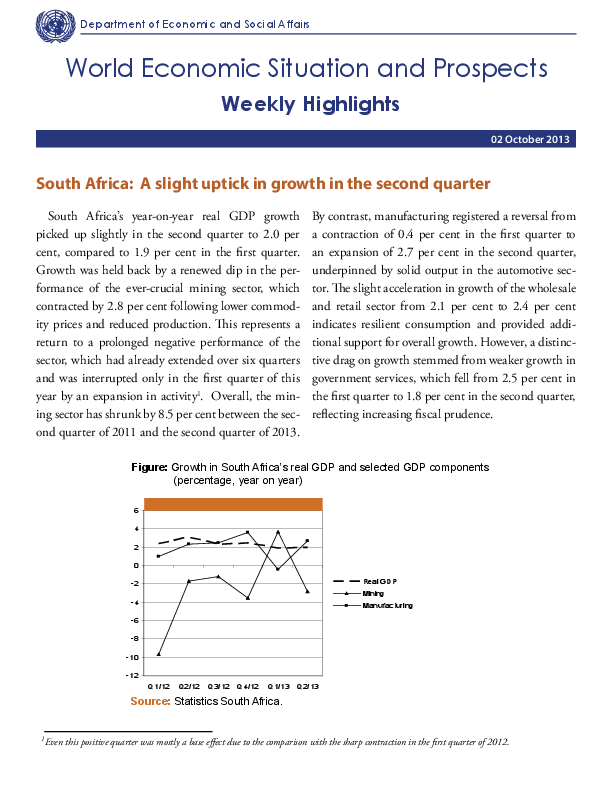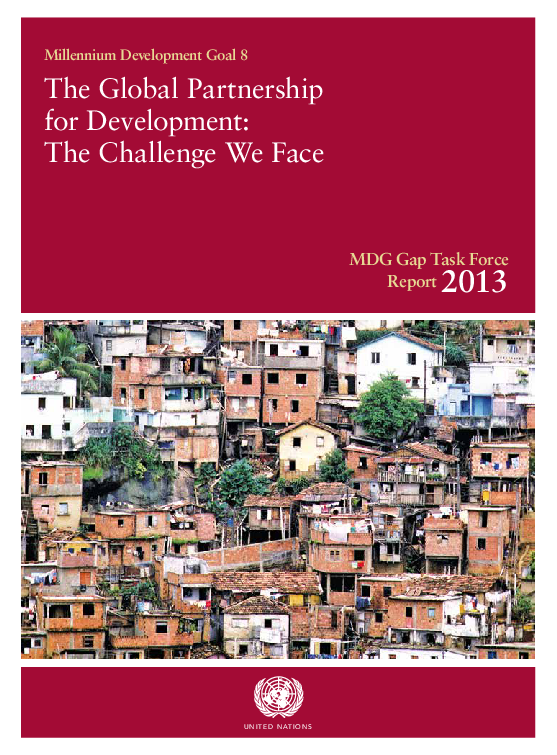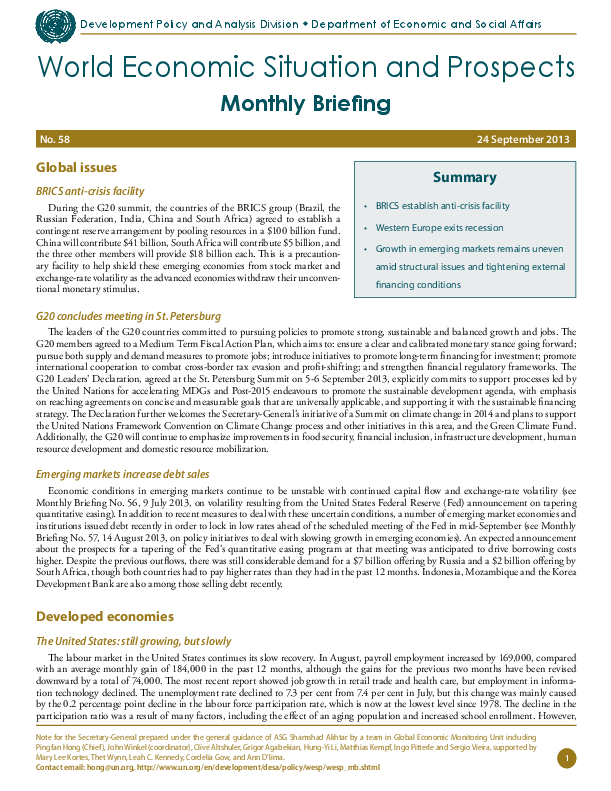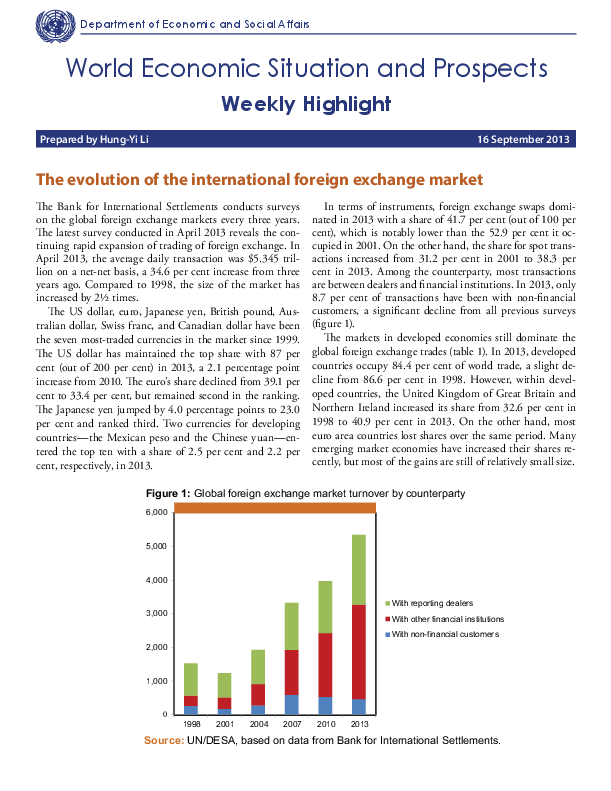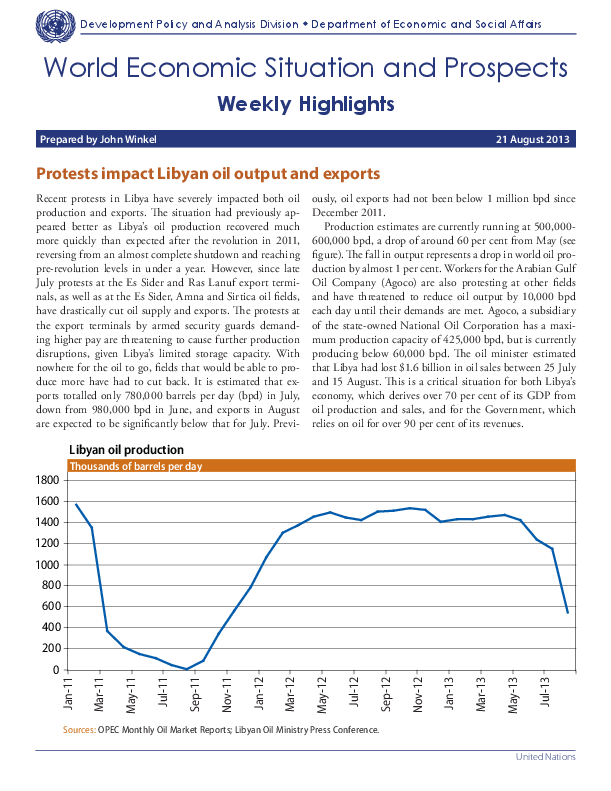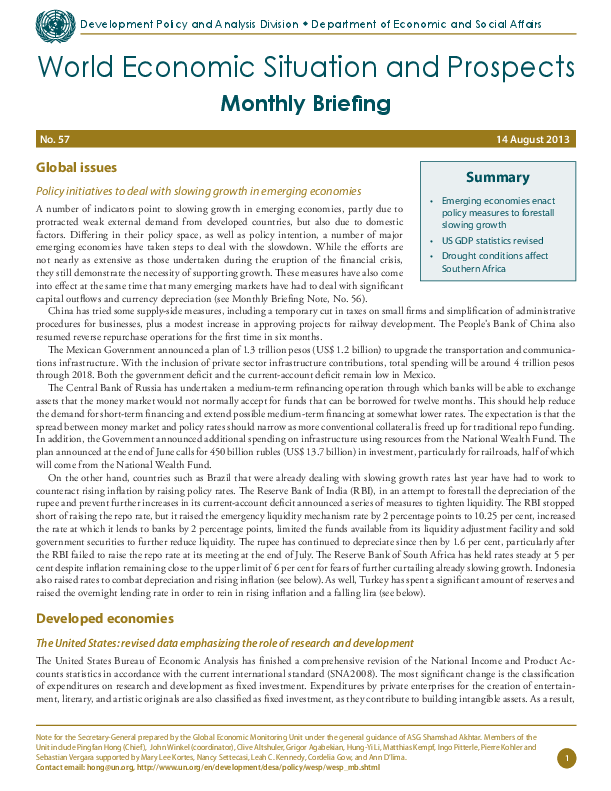Publications
Displaying 21 - 30 of 86
Summary: US Fed delays the tapering of the QE programme, providing a temporary relief for emerging markets
Chinese economy strengthens
Current-account deficits widen in several emerging
World Economic Situation and Pro
World
Summary: BRICS?establish?anti-crisis?facility
Western?Europe?exits?recession
Growth?in?emerging?markets?remains?uneven amid?structural?issues?and?tightening?external?financing?conditio
World Ec
World Economic Situat
Summary: Emerging economies enact?policy measures to forestall?slowing growth
US GDP statistics revised
Drought conditions affect?Southern Africa A number of indica
 Welcome to the United Nations
Welcome to the United Nations
